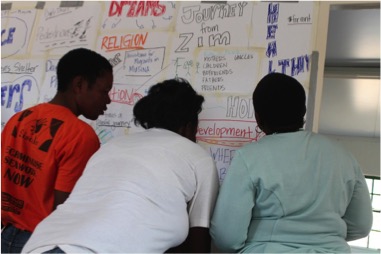
Led by Nicola Mai, the SEXHUM (Sexual Humanitarianism: Migration, Sex Work and Trafficking) project studies the correlation between migration, sex work, and trafficking in the global sex industry, as well as the impact of anti-trafficking and other humanitarian and social interventions targeting migrant sex workers in strategic urban settings in Australia, France and the United States. SEXHUM’s aim is to analyse migrants’ experiences of agency and exploitation, as well as producing new data reflecting the perspectives of migrants working in the global sex industry. The project seeks to ensure that more efficient and ethical policies and social interventions are developed to address sex workers’ needs. The methodology for this research draws upon several qualitative methods, particularly art-science ethnographic filmmaking. Research participants partake in the ethnographic film making to narrate their realities and to address the relational and performative dimensions of their experiences. This methodological approach was adopted to ensure that all intersubjective dimensions of the individual were covered by the research team. Furthermore, ethnographic film-making has been used to explore how the sex workers’ understandings of agency and exploitation have emerged and evolved along the migration experience.

